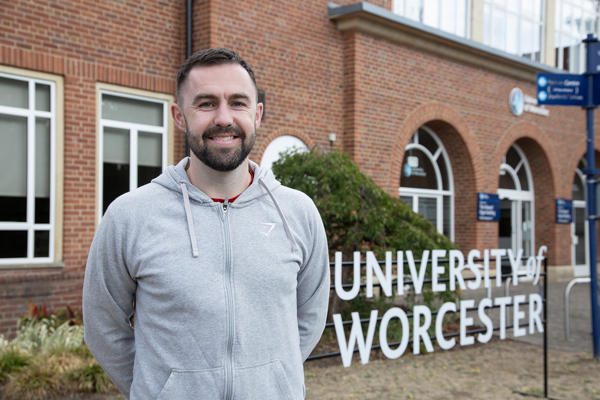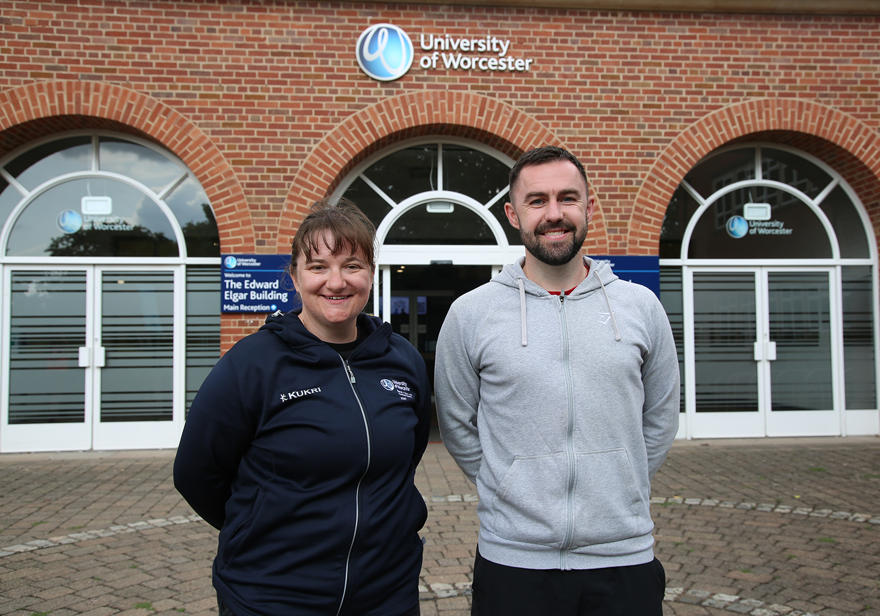A University of Worcester graduate who advocates for greater support to enable people with diabetes to participate in sport is taking his fight to Parliament.
 Chris Bright, and, photo below, shows Chris Bright (right) with Dr Emma Richardson
Chris Bright, and, photo below, shows Chris Bright (right) with Dr Emma Richardson
Chris Bright has worked to bring about a debate on the issue of diabetes in sport, taking place in the House of Commons on September 3. Chris, who has Type 1 diabetes himself, wants to see better provision made for people with diabetes to give them equitable access to physical activity.
“It’s massive because I have been pushing for something like this since I came here [the University] to do my Master’s. It was eight years in the making. It’s amazing but there’s more to do. They [MPs] have got to talk about the subject, it’s going to raise the profile of the challenge. There is a gaping hole in provision. They have got to listen and hopefully they’ll come up with solutions.”
Chris completed a degree in Sports Studies followed by a Master’s in Socio-Cultural Studies in Sport and Exercise, both at the University of Worcester. His own research during his Master’s focused on the stigma surrounding diabetes in sport and the impact of peer support.
Despite the challenges posed by his condition, Chris fulfilled his dream of playing sport for his country, with a call-up to the Wales national futsal squad. He founded and continues to run The Diabetes Football Community, a national network supporting footballers with diabetes, as well as their families.

Chris is now Community Partnerships and Events Lead at Breakthrough T1D, a UK diabetes charity. As part of this role, the charity commissioned a survey focussed on the barriers for people with diabetes participating in sport and physical activity. Chris approached Dr Emma Richardson, Senior Research Fellow in Inclusive Sport in the University’s School of Sport and Exercise Science and they have now co-produced an academic article looking at how the condition has impacted people’s ability to take part in sport and physical activity across the lifespan, from childhood through to older age groups.
Using a number of studies, Chris approached his local MP, who has now taken the issue to parliament to debate.
Chris said he was delighted that the issue was to be raised in parliament.
“There are 3.5 million people living with diabetes that are also categorised as living with a hidden disability,” he said. “You would expect some sort of provision for those living with a form of disability. A number of disabilities are covered in sporting pathways and actually have specific categories but for diabetes that doesn’t exist. It’s trying to inspire change around that. The insights from the national survey are powerful in expressing those challenges.”